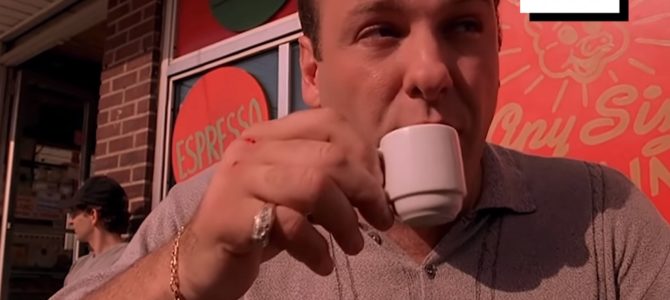
The pilot episode of “The Sopranos” debuted 20 years ago on HBO and signaled a major turning point in television drama. The show did not fit into any box. It was unproven ground airing late on a premium cable network. But within its first two seasons, it became required viewing.
James Gandolfini slid into the role of Tony in a way that made audiences completely forget they were watching an actor in front of a camera. In one of the unlikeliest combinations, Tony blended a humorous everyman into a brutal crime boss.
The story flowed through the dysfunction of common, relatable family life: a bitter mother, rebellious teenaged children, and a suspicious wife. But Tony’s life was anything but common. He savagely beat men over petty discrepancies, conducted business out of a seedy strip club, and murdered a man while visiting a college with his daughter.
Tony Soprano’s arrival demolished the good guy versus bad guy formula all television dramas had established before then. Audiences fell in love with him despite his crimes. He made it impossible not to.
In fact, “The Sopranos” featured no formula whatsoever. It was a saga that stayed connected in unpredictable but delightful ways. Unlike procedural-based police and hospital dramas, “The Sopranos” required that you watch every episode, in order, like chapters in a book you just can’t put down.
Unlike most popular dramas of the past, “The Sopranos” steered vehemently clear of high-profile stars and glamor, instead leaning entirely on dynamic characters and compelling story to attract viewers each week. With no advertisers, no need for commercial breaks, and no regard for network norms, “The Sopranos” was free to be exactly the show creator David Chase wanted to make.
Even in its quest for steadily flowing dramatic narrative, “The Sopranos” never forgot to have fun. Tony’s mother Livia Soprano’s timely passing was a personal favorite. Played by the late Nancy Marchand, Livia was pure comedy gold. If she wasn’t plotting to have her own son killed, she was complaining about mesquite making her sausages taste “peculiar” or accidentally hitting her friend with a car.
Tony’s self-sabotaging nephew Christopher, played by Michael Imperioli, often provided an awkward chuckle, including when various friends and family became so frustrated that they beat him up—at his own intervention for heroin use. Tony explained his injuries to a nurse as the result of a fall from a kitchen counter while spraying for ants. “He was wearing socks.”
For all the humor, however, the show was never short on tragedy. Fans said goodbye to many favorite characters through the run of the show. Particularly poignant episodes like “Funhouse” in season two and “Long Term Parking” in season five describe the darkest element of cheering on a mobster as he chooses with relative ease to kill friends he had kept and trusted for many years.
For all the groundbreaking elements, undeniable success, and legacy of “The Sopranos,” it came close to never existing. Even HBO was hesitant about ordering the series in the beginning. Their experience in hour-long drama at the time was limited to the gritty prison series “Oz,” which didn’t have a particularly strong following.
After many networks passed on Chase and his show about a depressed mobster, HBO took a chance and ordered the pilot. It was two years before that pilot actually aired with an order for the first season.
In its first eligible year, “The Sopranos” was nominated for ten Emmys. The door opened wide for a new era of television. As the show continued to attract record-breaking audiences, other shows that didn’t fit into the previously known mold for television entered the scene at an incredible rate. Antihero shows like “Six Feet Under,” “Dexter,” “Breaking Bad,” “Mad Men,” and “The Americans” may never have existed if not for the early success of “The Sopranos.”
The show continued to chart the course for TV drama until its final episode in 2007. Like any dramatic finale, there was plenty of commentary and controversy that many fans still discuss today. No matter how you feel about the end of the show, its impact is inarguable. Today, the bar for quality dramatic television has been risen to the level of feature films, a reality many could not have predicted just 20 years ago.









